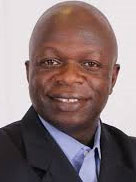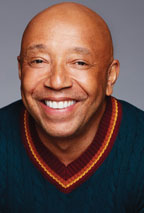Nigeria at a Crossroad
By Lekan Oguntoyinbo,  NNPA Columnist
NNPA Columnist
Nigeria, Africa’s so-called giant and the world’s biggest Black nation, is in the news again. And as usual, much of the world is watching with considerable trepidation. On Feb. 14, voters in this West African nation of 170 million people will go to the polls to pick a president. There are two frontrunners and for many voters it will be a tough choice.
The incumbent, a poor manager and weak leader with the curious name of Goodluck Jonathan, is running for his second and, presumably, final term. Jonathan, who has a well-earned reputation as a do-nothing president, came into office in 2010 when his ailing predecessor died in office. Despite pledging to only serve out his predecessor’s term, he ran in 2011. Now, despite a pledge to serve only one full-term, he is running again.
His opponent, Mohammed Buhari, is a septuagenarian former army general who wants his old job back. In the early 1980s, he helped overthrow a democratically-elected government and ruled Nigeria as military dictator for nearly two years. Some credit Buhari for running a government that imposed discipline on a notoriously wayward society. But many critics also remember a man who presided over a regime that muzzled the press, held people in prison without trial for long stretches and showed contempt for human rights.
Buhari says he’s now a reformed man, a committed democrat dedicated not only to the rule of law but to due process, liberty and justice. He won’t be the first former Nigerian military dictator to try to take over the reins of power once more. In 1999, another ex-general, who served as military dictator in the late ‘70s, was elected president. As his second term drew to a close, he tried to ram through a constitutional amendment that would have given him a third term (Nigeria’s constitution is modeled after that of the United States). Thankfully, he failed.
Four years earlier, another former military dictator credited with doing so much to ruin the country tried unsuccessfully to sneak back into office.
It’s not the first time Buhari has tried to get his old job back. In 2011, he ran against Jonathan and lost a race that observers failed to declare free and fair. His supporters rioted for weeks. Thousands of people died.
Nigeria has been a democratic country for less than half the 54 years it’s been independent from Great Britain. Free and fair elections are the exception, not the norm.
But now the stakes are much higher. Many analysts believe Buhari is a much stronger – and smarter candidate this time around. And more Nigerians have come to recognize that Jonathan may not be up to the job.
In the five years Jonathan has been in office, attacks in the northeastern region of the country by the terrorist group Boko Haram have intensified. Nigeria’s ill-equipped and poorly trained military has tried to fight back but it is clear that they are no match for the Islamic terrorists. Human rights group estimate that about 10,000 people have been killed in the last five years, but the number is likely much higher.
A few weeks ago – around the same time that the world was mourning the deaths of 17 French citizens killed by terrorists – Boko Haram soldiers marched through a section of one state, sacking numerous towns and villages and burning them to the ground. At least 2,000 people were estimated to have been killed. The massacre commanded only a fraction of the attention given the killings in Paris. World leaders did not converge on the Nigerian capital Abuja for a solidarity march.
Weeks went by and Nigeria’s president did not utter a word –and neither did Buhari.
In the meantime, the conflict with Boko Haram has drawn in several neighboring countries, including Niger, Cameroon and Chad. Nigeria is the rock of the West African subcontinent. It is the region’s wealthiest and most powerful country. It is one of the world’s three fastest-growing economies. It is also of vital strategic and economic importance to the United States and many other leading industrial nations.
Nigeria is one of the biggest oil suppliers to the United States. Constant flow of oil from the delta region helps keep prices at the pump relatively low here. For decades, Nigeria has played a key role in peacekeeping efforts in Africa and around the world. Nigeria is also a reliable ally of the United States in the so-called war against terrorism. There is some concern that post-election unrest could destabilize Nigeria. With destabilization could come a domino effect for many nearby nations – and ultimately for the rest of the world.
Even in a country with a long history of flawed elections, every election is important. But this election is particularly important – for Nigeria and the rest of the world.
.




Be the first to comment